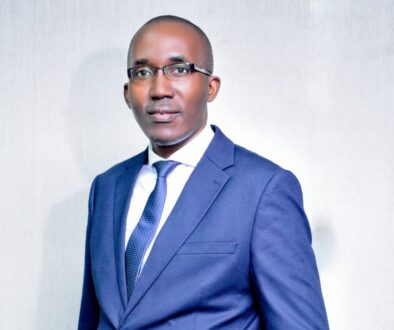Embracing our future with artificial intelligence

By Anthony Tenywa
Before you finish reading this, Artificial Intelligence will have made a dozen decisions on your behalf, whether it’s sorting your email, routing your mobile money transaction, or suggesting that funny TikTok clip you didn’t know you needed. The world has been calling AI “the new electricity” for years. And just like electricity, once it’s here, you can’t imagine life without it.
The good news? AI is no longer a far-off dream for Uganda. We are living it. Take health care, for instance. In 2024, AI-powered malaria surveillance systems started combining satellite images with weather data to predict mosquito breeding hotspots. This smart approach helped the Ministry of Health take early action, leading to a 15 percent drop in malaria cases. That’s not science fiction but science in action, in our own backyards.
In public services, even the much-feared queues at government offices are getting a tech makeover. The Uganda Investment Authority has deployed AI-driven smart queues to cut waiting times. A trip that used to take hours now feels almost pleasant; almost.
At Roke Telkom, we have been asking ourselves one big question; if AI can change the world, how can it change everyday life for a Ugandan customer? The answer has been in weaving AI into the small but critical moments of connectivity.
We use AI algorithms to keep your internet running smoothly, even when traffic peaks. That’s why your video call to Dubai doesn’t freeze when everyone in Kampala is watching the latest Damalie episode. Our AI-powered chatbots answer your routine questions at any hour, whether it’s a student checking data prices at 6 a.m. or a business owner troubleshooting at midnight. Behind the scenes, AI tools are watching out for suspicious activity on our network, shutting down potential cyber fraud before it reaches you.
But here’s the thing, AI will only be as powerful as the access we give people. Many rural areas still struggle with limited electricity and patchy internet. That’s why last year, we rolled out hotspot packages in places like Yumbe for as low as Ugx 500 unlimited access and just 1,000 shillings unlimited access for 24 hrs. It was about connecting students to online lessons, enabling farmers to check crop prices, and giving small shop owners a chance to market their products beyond their village, the youths in boutiques to market their new arrivals and the women in the market communicating to their daughters and sons in Dubai and Saudi Arabia.
We believe that AI will change jobs. Some will fade, and others we can’t yet imagine will appear. We must prepare for this shift. Our schools and universities should introduce AI-
focused courses, and those already in the workforce should have affordable ways to reskill. Strong data privacy laws will also be essential because in a digital economy, trust is everything.
The beauty of AI is that it doesn’t care where you are. A boda-boda rider in Mbarara can use AI-powered navigation to save fuel. A farmer in Lira can rely on AI weather predictions to plant at the right time. A shop owner in Jinja can use AI marketing tools to reach customers in Kampala.
If we get this right, AI will help Uganda catch up and leap ahead. And if you ask me, that leap is already starting. The AI future isn’t coming to Uganda. It’s already here. The question is, how far are we willing to let it take us?

Anthony Tenywa is the writer is the Commercial Manager at Roke Telkom


